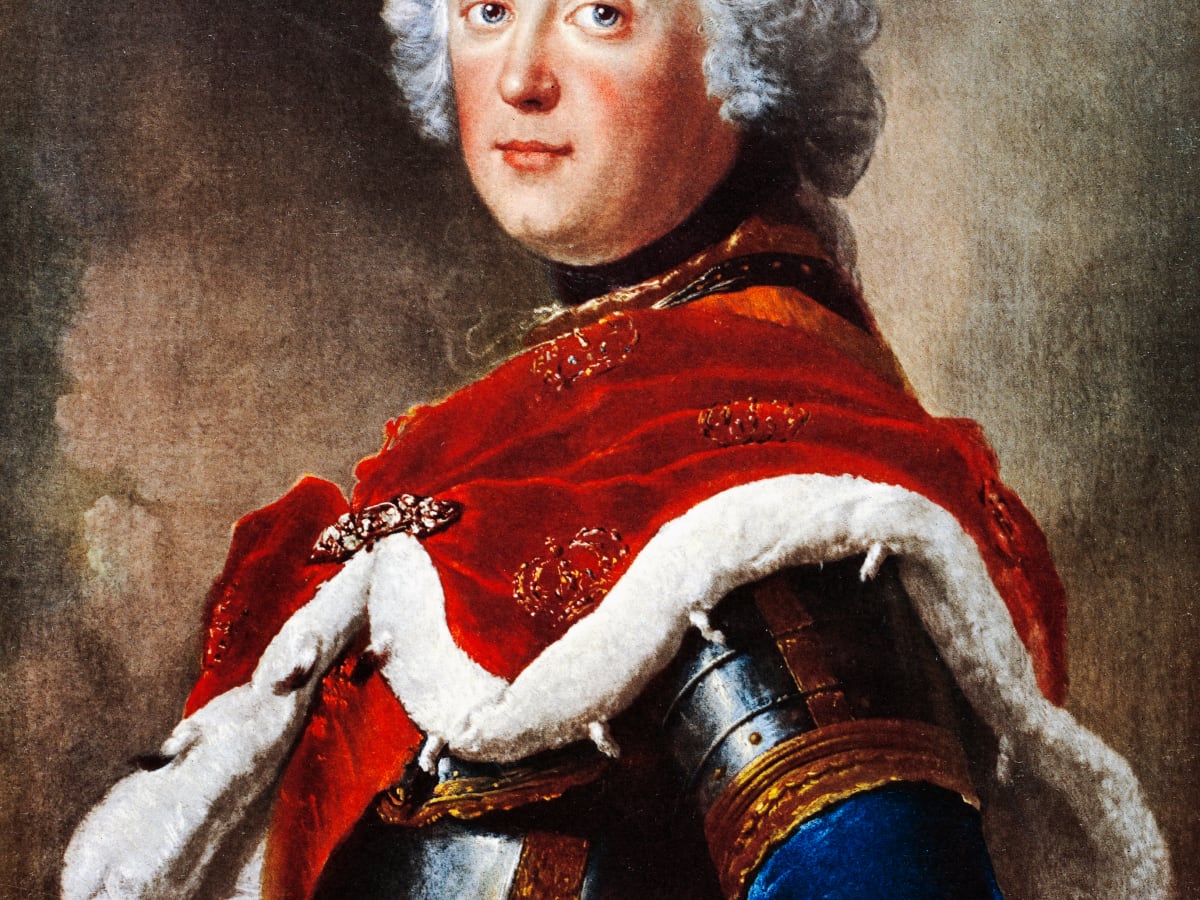Of all the eighteenth-century rulers, Frederick II, the Great, king of Prussia from 1740 to 1786, appeared best attuned to the Enlightenment. As a youth he had rebelled against the drill-sergeant methods of his father, Frederick William I. An attentive reader of the philosophes, he exchanged letters with them and brought Voltaire to live for a time as his pensioner in his palace at Potsdam, near Berlin.
Frederick conducted foreign and military affairs with cunning and guile. “The principle of aggrandizement is the fundamental law of every government,’ he wrote. Viewed as a general, diplomat, and the master mechanic of Prussian administration, Frederick the Great was efficient and successful, but, if enlightened, he was also quite clearly a despot.
No Physiocrat could have done more than Frederick to improve Prussian agriculture. From western Europe he imported clover, potatoes, crop rotation, and the iron plow. He drained the swamps of the lower Oder valley, opened up farms in Silesia and elsewhere, and brought in 300,000 immigrants, mainly from other areas of Germany, to settle the new lands.
After the ravages of the Seven Years’ War, Frederick gave the peasants tools, stock, and seed to repair their ruined farms. Frederick, however, was hostile to the doctrine of laissez faire. His mercantilism stimulated the growth of Prussian industry, particularly the textiles and metals needed by the army, but it also placed a staggering burden of taxation on his subjects.
The religious and social policies of Frederick the Great combined the Age of Reason at its most reasonable with the Old Regime at its least enlightened. A deist, Frederick prided himself on religious tolerance. When the Jesuits were expelled from Catholic states, he invited them to seek refuge in predominantly Lutheran Prussia. He boasted that he would build a mosque in his capital if Muslims wanted to settle there. Yet Frederick alleged that Jews were “useless to the state”; he levied special taxes on the Jewish subjects and tried to exclude them from the professions and from the civil service.
Frederick rendered Prussians a great service by his judicial reforms, which freed the courts from political pressures. He put an end to the unusual custom of turning over appeals from the ordinary courts to university faculties, setting up a regular system of appellate courts instead. He mitigated the practice of bribing judges by insisting that gratuities received from litigants be placed in a common pool, from which each judge should draw only his fair share as a supplement to his meager salary.
Yet the same Frederick took a medieval view of the merits of social caste. Although he abolished serfdom on the royal domains, he did little to loosen the bonds of serfdom generally, except to forbid the sale of landless serfs in East Prussia in 1773. When he gave the peasants material assistance and urged them to become literate, his aims were utilitarian. Peasants were to learn nothing beyond the rudiments of reading and writing; otherwise, they might become discontented.
He regarded the middle class, too, with disdain. At the close of the Seven Years’ War he forced all bourgeois officers in the army to resign their commissions; business and professional men were to be exempt from military service but subject to heavy taxation. Even the favored Junkers did not escape Frederick’s bureaucratic absolutism. Although he appointed only Junkers as army officers, he discouraged their marrying, so as to reduce the number of potential widows to whom the state would owe a pension.
Many historians pronounce Frederick’s supposed enlightenment a mere propaganda device, an attempt to clothe the nakedness of his absolutism with the intellectual garments of the age. It is fairer to recognize that Frederick espoused two often-conflicting philosophies— the Spartan traditions of the Hohenzollerns and the humane principles of the Enlightenment.
The grim overtones of the former kept him from sharing the latter’s optimistic estimate of human nature and potentiality. Frederick was an enlightened despot in his general religious toleration and his reform of court procedure and criminal law, but he was also bent on centralization that enhanced the Prussian kingship.

